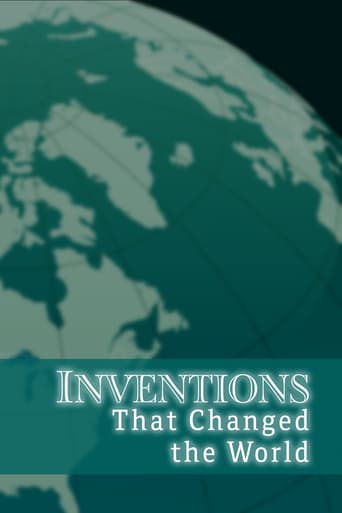PeteRoy
I like Jeremy Clarkson a lot, he has great sense of humor and he is very good commentating on cars with clever humor and intelligence.But this show was boring I'm sorry, the only decent episode was about the gun.It is boring because most of it focuses too much on the story of the invention, you hear Jeremy Clarkson telling the story while sometimes they will include scenes of actors portraying the inventors.But the most bothering thing is that they tell you how every invention is actually a British invention, in the computer episode for example, they tell you it was a British invention, but if they had gone deep enough they would tell you it was the Chinese who made the first computer which was the Abacus, only at the end of the episode they bother to mention that it was the Americans who made computers as we know them today.Milding interesting but ultimately misleading and not objective.
GerardF1
There are 5 episodes in this series covering the 5 inventions that "Changed the World" They are are the Gun, Computer, Jet, Telephone, and Television Clarkson has a more British perspective on these inventions than you would see on Nova. He does give credit where credit is do, but does make everyone aware that what you take for granted is not always correct.The series does remind one of the the old James Burke series, connections, but with a more modern twist. It is amazing how much things have changed in computer and telephones since Burke did his series in 1979. 15 Years is several lifetimes in the modern world of electronics.The series is well shot, well written, and presented in a fashion that is both humorous and serious. If you're not careful you might actually learn something.
Jackson Booth-Millard
I know this was a five episode documentary type TV series, but the only one of these programmes that I actually saw was the Gun episode. Jeremy Clarkson hosting/presenting this programme obviously gives it more humour and Britishness to it, even if he's not talking about cars. However, him talking about guns and not knowing whether they are good or bad is really intriguing. The demonstrations, facts, flashbacks and look of all these inventions that come into one category are all very interesting. He shows all the types of guns you can think of, the pistol, the shotgun, the cannon the machine gun and the bazooka, or rocket launcher. He briefly explains how guns are very cool in the media, I don't know whether that's all good or some bad. But whether we like it or not, the gun will be in the world for a long time. Good!

